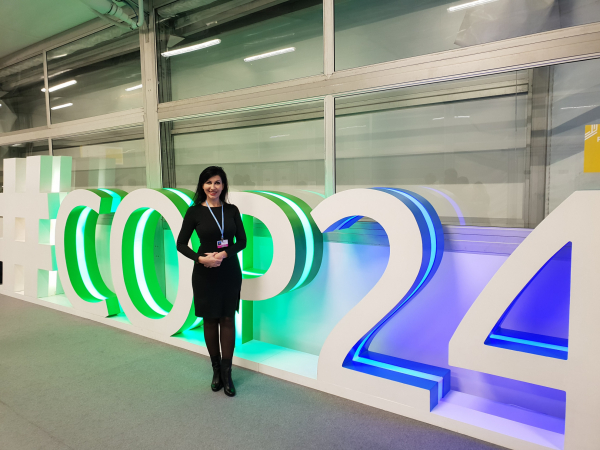COP24 climate summit – message from local and regional politicians

In December this year I will have the pleasure to represent the ECR Group and the European Committee of the Regions in the 24th session of the Conference of the Parties to the United Nations Framework Convention on Climate Change (COP24) in Katowice, Poland.
The conference will be attended by nearly 30 000 delegates from all over the world, including heads of government and ministers responsible for environment and climate issues, as well as local and regional politicians. Our objective will be to finalise the implementing guidelines and the technical rules of the Paris Agreement, the so-called "Rulebook", so that implementation can start in practice in 2020. Our work will help to set global climate and energy policy for the coming years.
During the discussions in Katowice I will focus on exchanging views on the ways of mitigating the disastrous impact of climate change on our local communities. The unprecedented frequency and cost of natural disasters is affecting all of us. What is worrying is that disasters are becoming more severe, more frequent and more costly.
New approaches and investments aimed at building resilience to natural disasters are required by all actors to help reduce losses. New frameworks for cooperation are emerging at the EU and UN levels and the financial savings from investments in resilience are expected to be significant. At the same time, I feel that not enough of these initiatives are locally-led.
That is why the presence of local and regional authorities at international climate conferences is so important. We will go to Katowice to exchange experiences on disaster risk management, clean energy, energy efficiency, technological innovations and traffic pollution. In all of these areas we have significant expertise and the power to improve people's daily lives. While national governments are responsible for the overall coordination of policies, it is often up to us to translate goals agreed by them into concrete actions.
I represent Lithuania which, according to the NUTS classification, is treated in the EU as one region. Currently, Lithuania is reviewing the whole country's master plan and is looking for innovative solutions to achieve sustainable and balanced economic and social development in all of its 60 municipalities, in all cities and towns.
Lithuania is implementing innovative mechanisms, distinguishing between regional specialities and functional regions, in order to achieve greater efficiency and economies of scale, while contributing significantly to tackling climate change and reducing major traffic congestion.
In Lithuania we agreed to double the financing for climate change and to do even more to combat climate change, aiming to achieve 45% use of renewable energy sources by 2030. Achieving such ambitious targets will help us to reduce the impact of natural disasters. But we will be able to achieve them only through the active involvement of local and regional government in this process and by learning how to embark on the road to transformation from cities and regions which are more advanced in this area. Conferences like the one in Katowice offer just such an opportunity.
By Daiva Matonienė (Member of Šiauliai City Municipal Council and former Deputy Minister of Environment of Lithuania)

